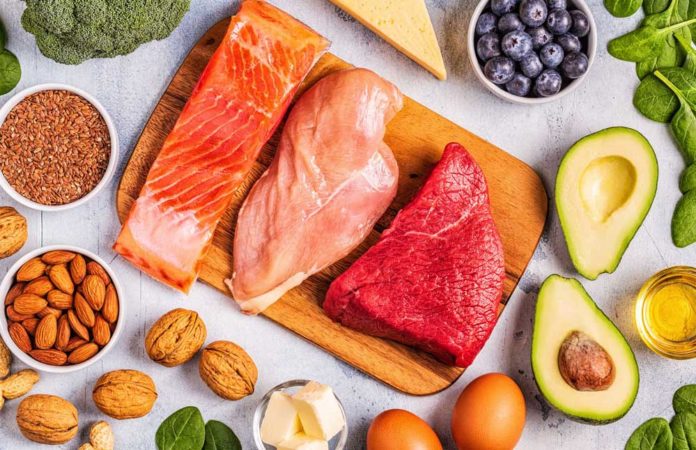People who want to be healthy are always looking for better ways to improve their diet. There are different schools of thought on carbohydrates, fats, and almost any other nutrient, but nearly everyone agrees that protein is a key nutrient that everyone needs in their diet.
The recommended daily intake of protein as directed by the USDA is 46 grams of protein for women and 56 grams of protein for men. If you are athletic and you have a very active lifestyle, then you may need to have a higher protein intake than what is recommended for the general population. Whether you want to lose weight, gain muscle, or just stay at your current fitness level, it is very important that you get the right amount of protein for both your activity level and your body type.
Pinpointing the perfect protein intake for your needs can also help you to burn off unwanted belly fat faster and stave off some common chronic illnesses. You can source this protein from a wide variety of foods in your diet, even if you are a vegetarian.
17 High Protein Foods For Your Diet
Contents
Here is a list of foods that are high in protein so you can pick out your favorites and incorporate them into your diet plan.
1. Almonds

Almond is a tree nut that is very popular and is an excellent source of protein. It is a great ingredient in many dishes, but it really shines as a quick and simple snack that you can take with you anywhere. Almonds are all very high in fiber, which gives them a great 1-2 punch with protein. They also contain manganese, magnesium, and vitamin E in fairly high doses, too.
Every serving of almonds provides about 13 percent of its calories in the form of protein, meaning that you can get 6 grams of protein from a one-ounce serving that has only 161 calories.
2. Pumpkin Seed
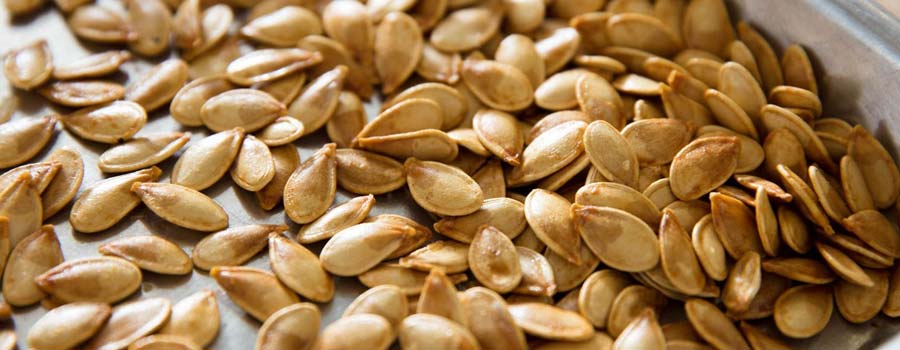
Pumpkin seeds are a less common snack due to their seasonal nature and the amount of work one has to do to extract them from the actual pumpkin. They grow in the center of the fruit and are quite delicious, especially when roasted. In addition to having great flavor, they are also very high in protein.
In addition to protein they are also high in magnesium, zinc, and iron, so treating yourself to pumpkin seeds more often is a great way to ensure that you get more essential nutrients and up your protein intake at the same time.
The calorie count in each serving of pumpkin seeds is about 14 percent protein, so these little seeds can account for a pretty decent portion of your daily intake needs. A single ounce of pumpkin seeds contains 5 grams of protein and 125 calories.
3. Oats
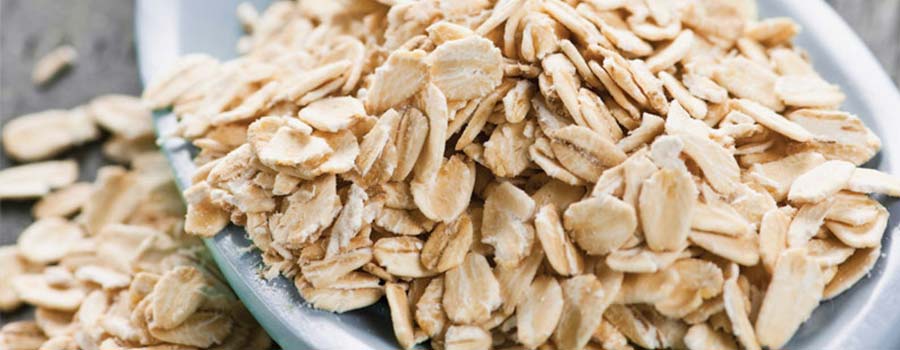
Oats are believed to be among the healthiest grains and are rich in magnesium, manganese, vitamin B1, and fiber. They are also a great source of protein, and one of the only good sources among the grain family. If you’re
Someone who enjoys having oatmeal for breakfast, this is a great way for you to get your protein intake started early.
The calories found in every serving of oats are about 15 percent protein, and just half a cup of oats (before being cooked) contains around 13 grams of protein and 300 calories.
4. Quinoa

Quinoa is rarely left off of any list of amazing superfoods. It is both a seed and a grain that can provide with a host of health benefits. If quinoa isn’t already a regular part of your diet, you should definitely give it a try.
Out of all the seeds and grains that are available for consumption quinoa easily has the highest protein content. It is also chocked full of fiber, antioxidants, vitamins, and minerals.
The calories in each serving of quinoa are roughly 15 percent protein, so cup of cooked quinoa will provide you with 8 grams of protein and about 222 calories.
5. Brussels Sprouts
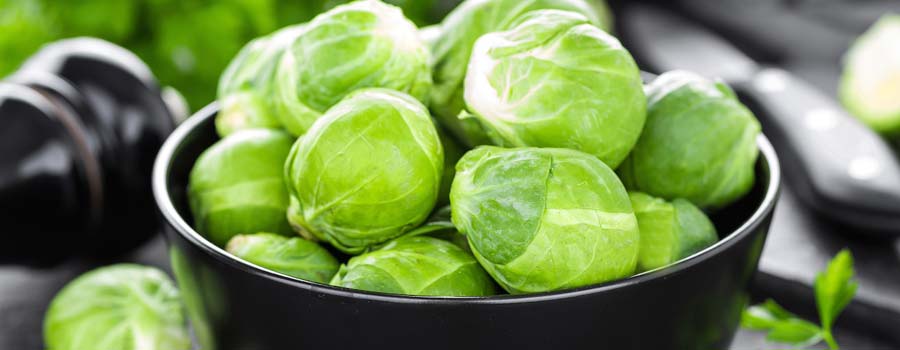
Brussels sprouts are cruciferous vegetables and also happen to be very high in protein. Like all of the other vegetables that are found in this family, they provide the body with tons of vitamin C and fiber, as well as a few other important nutrients.
The calories in every serving of Brussels sprouts are 17 percent protein, and every half-cup provides you with 2 grams of protein and 28 calories.
6. Ezekiel Bread
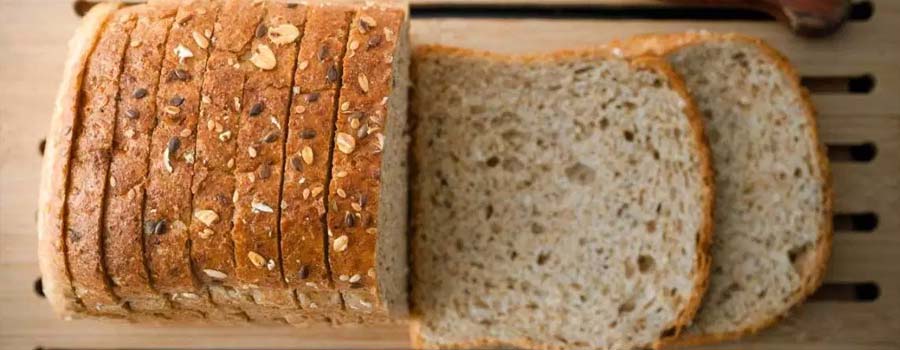
Ezekiel bread is a good example of a food that is popular, but not as a protein source. It’s a bit different from other types of bread and a great source of fiber, but it’s also got a pretty good protein count.
Ezekiel bread is made from sprouted grains, legumes, and seeds, and most of the nutritional value it contains comes from spelt, soybeans, wheat, barley, lentils, and millet.
The calories in each serving of Ezekiel bread are about 20 percent protein, so every slice can provide you with 4 grams of protein and only 80 calories.
7. Broccoli

Broccoli is related to Brussels sprouts and is another cruciferous vegetable. It is well-known as a great source of vitamin C, vitamin K, potassium, and fiber, but it also contains a good amount of protein.
Most of the vegetables you come across will usually be pretty low on protein, but broccoli definitely earns its place at the table. It provides you with a ton of bioactive compounds, gives you plenty of protein, and helps to protect you from a slew of chronic illnesses.
The calories in each serving of broccoli are 20 percent protein, which is a massive percentage for any vegetable. One cup can provide you with 3 grams of protein and only brings with it 31 calories.
8. Lentils

Lentils are a very popular protein source among vegetarians, and it’s probably one of the best possible ways to get protein out of all the sources that are plant-based. Lentils contain manganese, folate, copper, iron, magnesium, potassium, and a heavy dose of fiber to add to their benefits as more than just a good source of protein.
The calories in each serving of cooked lentils are about 27 percent protein, and a serving of 1 cup can provide you with 18 grams of protein with only 230 calories.
9. Eggs

Many people eat only the whites of eggs, and while it’s true that is where most of the protein is, it’s really quite a shame. Egg yolks offer plenty of benefits of their own and keeping the whole egg in your diet provides you with a massive nutritional resource.
Eggs contain a good number of antioxidant to protect your eyes, minerals, vitamins, healthy fats, and nutrients that specifically feed your brain power.
The calories in 1 egg are about 35 percent protein, so you get about 6 grams of protein from every egg for just 80 calories.
10. Fish
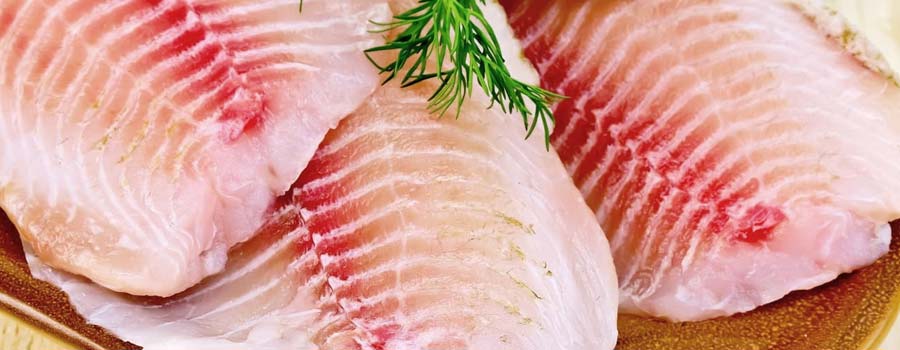
Pretty much every edible fish is a healthy food source because they all contain some level of essential acids. The fattier fish like salmon are the best sources of omega-3 fatty acids, which are vital nutrients that protect your heart health and provide a range of other health benefits.
Different types of fish each offer different amounts of protein, but any quality fish dish is going to boost your protein intake a reasonable amount.
The calories in salmon are about 46 percent protein, so a single 3-ounce serving will provide you with 19 gram of protein for about 175 calories.
11. Greek Yogurt
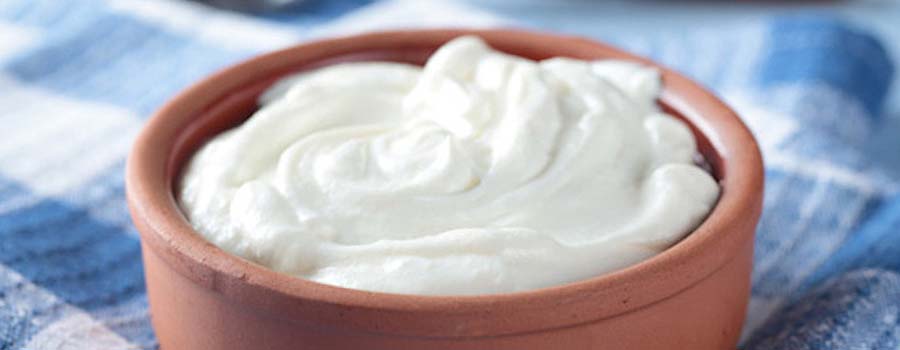
The primary difference between Greek yogurt and regular yogurt is that Greek yogurt is strained to remove excess liquid and create a richer, thicker product. This gives it a creamy texture and also explains why it’s so popular.
If you’re worried about the added sugar in most yogurt products, stick to the plain yogurt instead of the varieties that are available in a veritable rainbow of colors. If calories are also a concern, you can opt for the fat-free or low-fat version.
The calories found in a 6 ounce serving of Greek yogurt that is fat-free are around 48 percent protein. The same serving is only about 100 calories, so you really can’t go wrong with this option if you like the taste.
12. Lean Beef
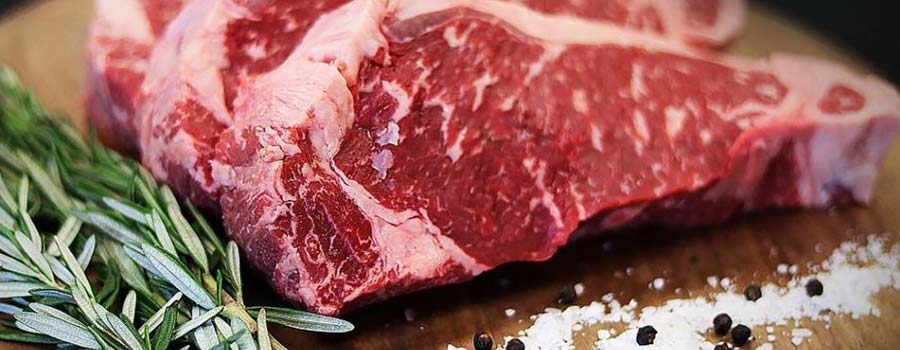
No beef is 100 percent fat-free, so even the leanest variety you can find with still get some of its calories from fat instead of protein. However, beef packs a ton of nutrients like vitamin B12 and iron. It is also a very popular meal choice with an endless stream of different preparation options.
The protein content of beef depends somewhat on the cut of meat that is selected, but you can safely use a rough estimate of about 53 percent of calories coming from protein. This means a 3-ounce serving would have a little less than 200 calories and around 22 grams of protein.
13. Cottage Cheese
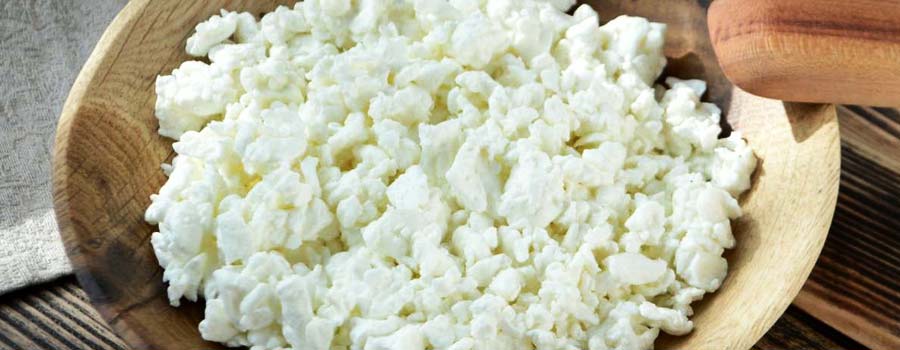
Many kinds of cheese are typically high in fat, but cottage cheese is one of the exceptions to this rule. It also contains a ridiculous amount of vitamin B2, vitamin B12, calcium, phosphorus, selenium, and many other nutrients.
The calories in each serving of 2 percent fat cottage cheese are about 59 percent protein, so a cup will yield you about 200 calories and 27 grams of protein.
14. Turkey Breast
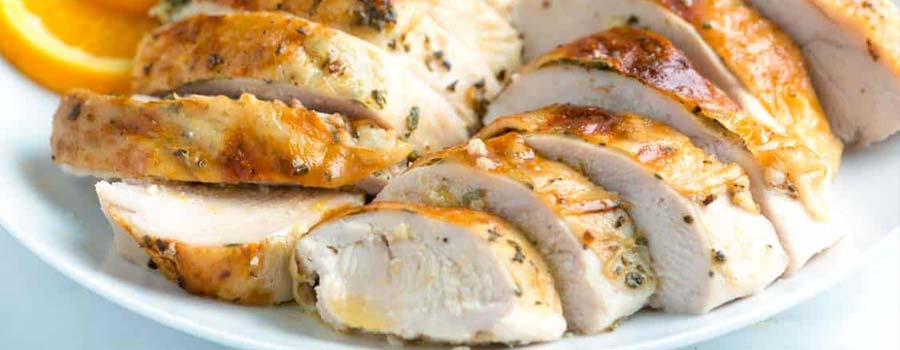
Turkey breast is very low in fat, so almost all of its calories are derived from protein. Raw turkey breasts are a great source here, and you can find them frozen at most grocery stores that you can thaw out and bake once you get home. If you go ahead and do this before you need it, you can have pre-cooked turkey ready to go anytime you need it.
Around 70 percent of the calories in turkey breasts are derived from protein, which gives you a whopping 24 grams and only 146 calories in every 3-ounce serving.
15. Chicken Breast
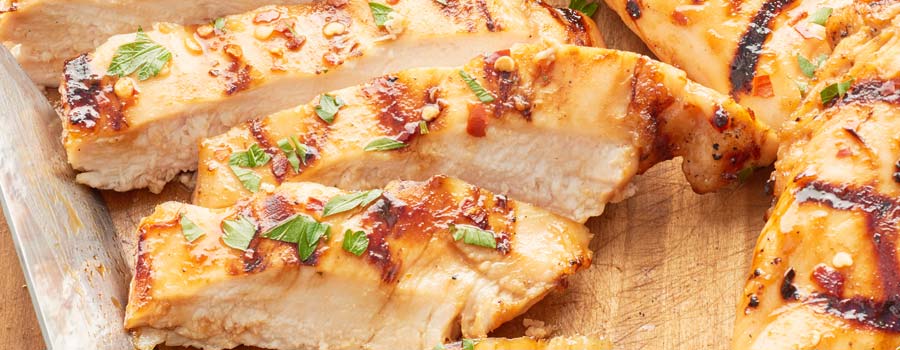
The fattiest part of a chicken breast is the skin, so if you remove that part your protein content gets pretty high. The rest of a chicken breast can clock in at around 80 percent protein.
Chicken breast is a very common and popular food, mostly because it’s very easy to prepare a very delicious meal using it. All you have to do is be careful not to overcook it or let it get dry.
One medium-sized chicken breast can pack in 53 grams of protein inside of about 284 calories.
16. Whey Protein

If you need a good source of protein and you’re not really in the position to cook a meal or have a standard snack, whey protein has got you covered. Whey protein is a product that is specifically designed to deliver a high dose of high-quality protein, which is derived from dairy products. It has been scientifically proven to effectively help build muscle mass and lose weight alongside a proper exercise program.
The protein content of whey protein powders really depends on the brand and product you are using, but most contain between 20 grams and 50 grams of protein in each serving. For some products, this may account for as much as 90 percent of the calories they provide.
17. Tuna

Tuna is another meat that is very low-fat, which means that almost all of its calories are going to come from protein. It is a fish that is very popular in many forms ranging from low-budget canned tuna to fancy sushi. It is impressively high is omega-3 fatty acids and many other vital nutrients.
A can of tuna packed in water gets about 95 percent of its calories from protein. A serving of 1 cup contains about 39 grams of protein and 179 calories.
Final Thoughts On High Protein Foods
Unless you already have a perfect handle on your diet, it’s quite likely that you could benefit from cutting out some of the junk you eat and filling that space with foods that are more protein-rich. The proper amount of protein can help you to build muscle, lose weight, or just be healthier overall.
All you have to do to up your intake is you add more foods from this list to your daily diet, and you’ll be balancing your life for more protein and less fat in no time.













![Bowflex Max Total: 2024 Fitness Workout Exercise Machine [Review] Bowflex Max Total: 2020 Equipment Review For Complete Upper and Lower Body Workout](https://www.advancedliving.com/wp-content/uploads/2019/12/Bowflex-Max-Total-218x150.jpg)


